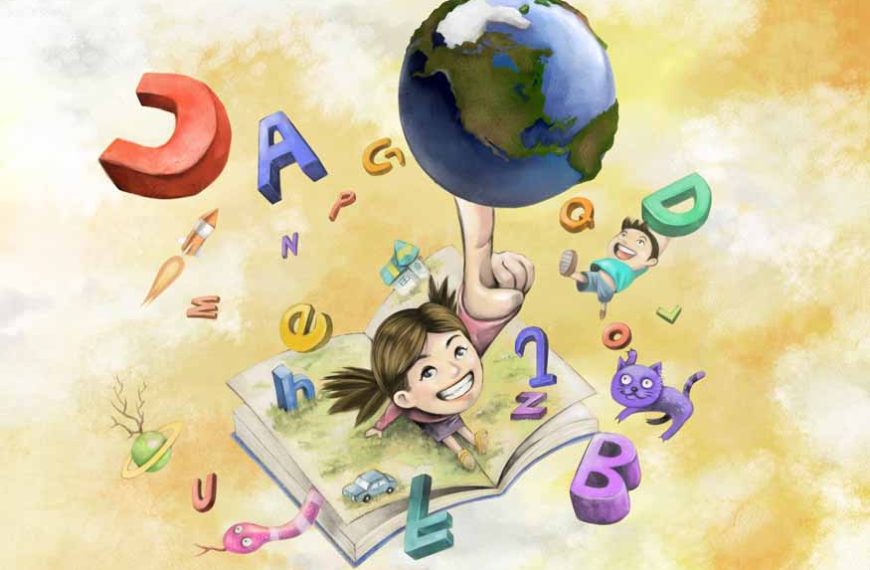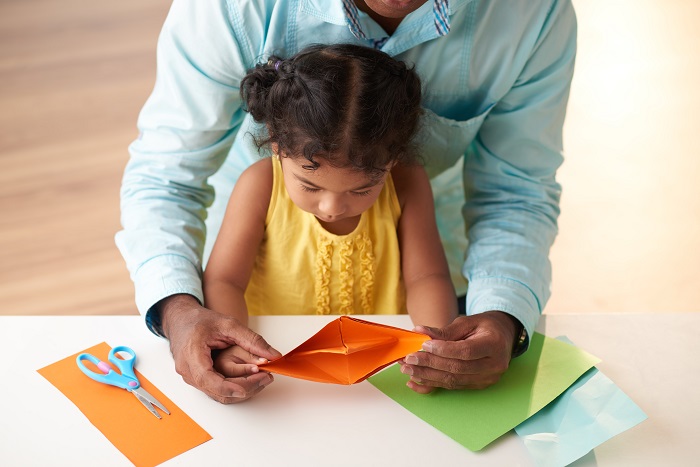Mathematics, often perceived as a subject of numbers and equations, can be brought to life through stories. For young learners, especially in India, where education is rapidly evolving, blending maths with storytelling can be a game-changer. This approach not only makes learning enjoyable but also helps in understanding and retaining mathematical concepts better. Let’s dive into the world of interesting maths stories and discover how story problems can transform the way we approach maths.
- The Power of Storytelling in Maths
- Interesting Maths Stories from History
- Maths Adventures in Everyday Life
- Story Problems: A Tool for Critical Thinking
- Creating Engaging Maths Stories
- Maths Adventures at School
- The Role of Parents in Maths Storytelling
- Technology and Math Stories
Story related to maths? Read on ! Imagine a classroom where maths isn’t just about solving equations but about going on adventures, solving mysteries, and overcoming challenges through numbers. This is the essence of integrating stories into maths. A well-crafted story related to maths can captivate young minds, making abstract concepts tangible and relatable. When children encounter maths problems embedded in stories, they are more engaged and motivated to solve them.
Throughout history, mathematics has been adorned with intriguing stories and remarkable individuals. One such story is that of Aryabhata, an ancient Indian mathematician and astronomer who introduced the concept of zero and made groundbreaking contributions to the field. His work laid the foundation for algebra and influenced mathematical thought for centuries. Another captivating tale is that of Brahmagupta, another Indian scholar, who wrote extensively on how to solve quadratic equations and worked on number systems. These historical narratives not only add a layer of richness to the subject but also inspire students by showing them the monumental impact of mathematical discoveries.
Mathematics is not just a subject confined to the pages of a textbook; it is a vital part of our everyday lives. By integrating maths with daily scenarios, we can make learning far more relevant and engaging. Consider the simple act of dividing a pizza among friends, which serves as a practical lesson in fractions. Or imagine turning a geometry class into a thrilling adventure by planning a treasure hunt using coordinates. These real-life story problems help children understand the practical applications of maths. They can learn about percentages through planning a family budget or explore basic algebra while figuring out travel times on a road trip. This approach not only makes maths relatable but also instil a sense of excitement and curiosity in young learners.
Story problems are more than just mathematical exercises; they are catalysts for developing critical thinking skills. These problems challenge students to apply mathematical concepts to real-world scenarios, thereby enhancing their analytical and problem-solving abilities. When faced with a story problem, students must first identify the underlying mathematical principles and then devise a strategy to solve it. This process encourages logical reasoning and systematic thinking, essential skills in the academic and professional worlds. Moreover, as students tackle these problems, they learn to approach complex situations in a structured and thoughtful manner, preparing them for future challenges.
To create engaging maths stories, it’s essential to weave mathematical concepts into scenarios that resonate with the student’s everyday experiences. These stories should be age-appropriate, culturally relevant, and relatable, especially for Indian students. Imagine a story set during a popular cricket match where children learn about probability and statistics by analysing the players’ performances. Or consider a tale set in a bustling Indian market, where children learn about budgeting, percentages, and basic arithmetic while ‘shopping’. By linking maths with familiar settings and activities, these stories not only enhance understanding but also build a stronger connection between the student and the subject.
In the classroom, maths adventures can transform the learning experience. Teachers have the unique opportunity to use storytelling as a powerful tool to bring maths concepts to life. Instead of traditional lecture-based lessons, they can create interactive and dynamic sessions where maths is explored through stories and practical applications. This approach is particularly effective in catering to diverse learning styles. Visual learners can benefit from story-based problem solving, while kinesthetic learners can engage in activities that involve physical interaction with maths concepts. By integrating storytelling into maths education, teachers can create a more inclusive and enjoyable learning environment, making maths accessible and interesting for every student.
Parents are children’s first teachers and can significantly influence their attitude towards maths. By incorporating maths stories at home, such as measuring ingredients for a recipe or calculating the time for a family trip, parents can reinforce the concepts learned at school and show the practical side of maths.
In this digital age, technology can be a great ally in delivering maths stories. Educational apps and online platforms offer a plethora of interactive maths stories and games that make learning maths an enjoyable experience. These resources are particularly useful for visual and auditory learners.
Maths Topics to Teach by Stories
- Basic Arithmetic:
- Fractions and Decimals:
- Geometry:
- Algebra:
- Probability and Statistics:
- Time and Money:
- Measurements and Conversions:
- Patterns and Sequences:
Stories can revolve around shopping, cooking, or playing sports, teaching addition, subtraction, multiplication, and division in a fun and engaging way.
Using scenarios like sharing food, distributing resources, or measuring ingredients, to explain the concepts of fractions and decimals.
Tales involving treasure maps, construction, or art projects can introduce shapes, symmetry, and spatial reasoning.
Stories about solving mysteries or puzzles can be used to introduce basic algebraic concepts and problem-solving strategies.
Using games, sports analysis, or weather predictions in stories to explain probability, data collection, and analysis.
Tales involving travel planning, saving money, or running a small business can teach about time management, currency, and budgeting.
Stories about cooking, crafting, or building can be used to teach units of measurement and conversion methods.
Narratives involving music, dance, or nature to explore patterns, sequences, and logical reasoning.
Each topic can be tailored to the age and cultural context of the students, making maths both a meaningful and delightful learning experience.
The integration of stories into maths is not just a teaching method; it’s a way to spark curiosity and a love for learning in young minds. By combining maths adventures with story problems, we can make maths more meaningful and enjoyable for children. As we continue to explore the synergy between storytelling and mathematics, we pave the way for a generation of learners who see maths not as a challenge but as an exciting adventure.
In a world where education is constantly evolving, EuroKids stands at the forefront, championing the cause of making maths both fun and educational. Their commitment to nurturing young minds through innovative teaching methods makes them a beacon of excellence in the realm of early childhood education in India.
EuroKids, a leading name in early childhood education in India, understands the importance of making maths meaningful through stories. Their curriculum is designed to integrate maths with storytelling, ensuring that children find joy and excitement in learning maths. EuroKids’ innovative approach helps in laying a strong foundation in maths from an early age, preparing children for a future where they can confidently navigate the world of numbers.
With a focus on blending learning with fun, EuroKids is dedicated to creating a nurturing and stimulating environment where children can grow and learn.
FAQs
Q1: How can storytelling help in learning mathematics? A1: Storytelling makes mathematical concepts tangible and relatable, increasing engagement and motivation. It helps students visualize and understand abstract ideas, making learning enjoyable and effective.
Q2: Can you give examples of historical figures in maths who can be used in storytelling? A2: Aryabhata and Brahmagupta are great examples. Their contributions to concepts like zero, algebra, and quadratic equations can be woven into stories that inspire and educate.
Q3: How can maths be integrated into everyday life through stories? A3: Stories can revolve around daily activities like dividing a pizza (fractions), planning a treasure hunt (geometry), or managing a family budget (percentages). These scenarios help students see the practical applications of maths.
Q4: What are the benefits of story problems for critical thinking? A4: Story problems enhance analytical and problem-solving skills, encourage logical reasoning, and develop systematic thinking. They prepare students for complex real-world situations.
Q5: What should be considered when creating engaging maths stories? A5: Stories should be age-appropriate, culturally relevant, and relatable. They should link mathematical concepts to familiar settings and activities to enhance understanding and connection with the subject.
Q6: How can parents contribute to maths storytelling? A6: Parents can incorporate maths stories at home, using everyday situations like cooking or planning trips to reinforce maths concepts and demonstrate their practical applications.
Q7: What role does technology play in maths storytelling? A7: Technology, through educational apps and online platforms, offers interactive maths stories and games, catering to different learning styles and making maths learning more enjoyable.
















